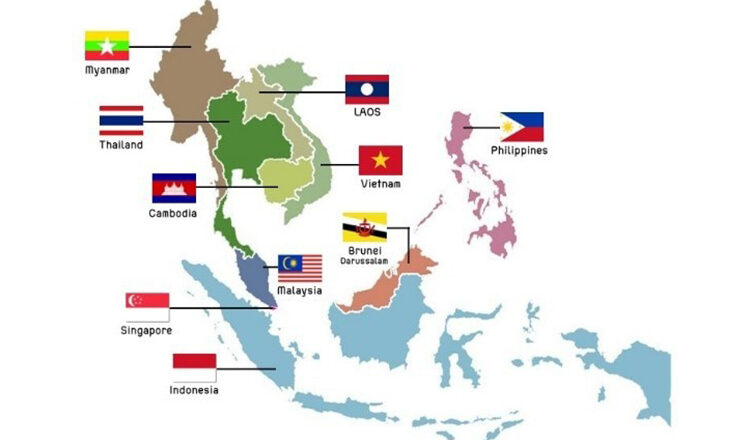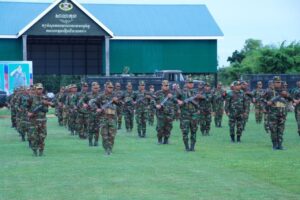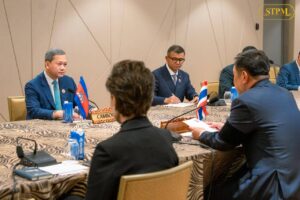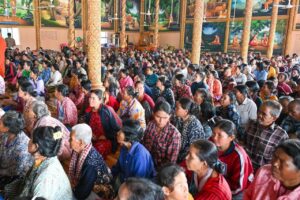OpEd: ASEAN unity and centrality at risk
ASEAN today faces one of the most challenging moments in its history since its establishment in 1967.
Intensifying geopolitical rivalries, economic fragmentation, disruptive shifts in supply chains, technological competition, the resurgence of protectionism and unilateralism, and the decline of global governance and multilateralism all pose serious threats to ASEAN’s unity and centrality.
The rules-based international order and open and inclusive multilateralism—long the foundation of ASEAN’s relevance—is weakening, and the region risks being pulled into the vortex of major-power competition.
Compounding these external pressures are unresolved internal conflicts and fragile bilateral relations. The ongoing armed conflict in Myanmar has eroded ASEAN’s cohesion and credibility.
Meanwhile, the recent five-day border war between Cambodia and Thailand (July 24-28), followed by a tenuous ceasefire, underscores the risks of escalation within ASEAN itself.
The Cambodia-Thailand conflict is not just a bilateral issue. It is a litmus test of ASEAN’s ability to uphold its founding promise: that Southeast Asia will not be a region divided by war, but one united by cooperation.
Failure to act decisively risks not only a resurgence of armed conflict but also the erosion of ASEAN’s credibility at a time when unity and centrality are needed most.
The situation along the Cambodia-Thailand border remains tense and the ceasefire is highly fragile.
Despite Cambodia’s consistent commitment to the ceasefire, Thai actions—including the illegal installation of barbed wire, use of violence against Cambodian civilians, and extraterritorial application of Thai domestic law over Cambodian territory—constitute clear violations of the ceasefire and international law. These actions erode political trust and heighten the risk of renewed armed clashes.
Thailand’s unilateral decision to indefinitely close its border with Cambodia further destabilises the region. This move disrupts regional supply chains and production networks, with Japanese companies already reporting severe impacts. More critically, it highlights how easily bilateral disputes can spill over into regional economic fragmentation.
Thailand has sought to justify the closure by framing Cambodia as the centre of online scamming operations. In reality, online scams are transnational in nature, with Thailand itself serving as a hub for syndicates that operate on or transit through its territory.
Cambodia, Laos, and Myanmar are not perpetrators but victims of this global phenomenon. Instead of blame games, what is urgently required is cross-border cooperation, coordinated law enforcement, and international partnerships to dismantle transnational criminal networks.
The crisis reveals ASEAN’s enduring dilemma: its principles of consensus and non-interference limit decisive action, even when regional peace and stability are directly at stake.
Cambodia has consistently advocated for the swift deployment of an ASEAN Observer Team to monitor and enforce the ceasefire, underscoring the importance of a regional mechanism to ensure transparency and build trust. Thailand, however, has been reluctant to fully recognise ASEAN’s mediating role, thereby undermining the collective effort to stabilise the situation.
Earlier, even when Malaysia, in its capacity as ASEAN Chair, was trying to broker the ceasefire, Thailand was reluctant. This suggests Thailand’s calculated attempt to prolong the armed confrontation to inflict greater political, economic, and psychological costs on Cambodia.
It is noteworthy that external actors—in this case, US President Donald Trump—played a decisive role in securing the ceasefire. Without the decisive factor of the US, Thailand might not have accepted the ceasefire agreement on July 28.
This episode exposes a deeper risk: if ASEAN is unable to act as a credible mediator in intra-ASEAN conflicts, member states will increasingly turn to external powers, eroding ASEAN’s centrality.
The immediate priority is the effective implementation of the ceasefire through a joint ASEAN Observer Team with representatives from both sides and ASEAN member states.
Without the effective and impartial presence of an ASEAN Observer Team to monitor the ceasefire, the risk of renewed armed confrontation remains high. Any resumption of hostilities is likely to be larger in scale and more destructive than the recent five-day border war.
This makes it urgent for ASEAN, with support from the broader international community to step in and ensure credible monitoring of the ceasefire’s implementation.
At the same time, the international community must strongly condemn the violator(s) of the ceasefire while calling for the exercise of maximum restraint, avoidance of unilateral actions that could inflame the situation, and prioritisation of dialogue over confrontation.
The current unilateral monitoring by Cambodia and Thailand is inadequate and risks further mistrust. A collective ASEAN mechanism would not only stabilise the border but also restore confidence in ASEAN’s ability to manage its own conflicts.
ASEAN must reinvest much more in confidence-building measures, preventive diplomacy, crisis management, and conflict resolution mechanisms.
The preservation of peace and stability is not the responsibility of individual member states alone but of the entire ASEAN family. Border disputes, once allowed to escalate, threaten the credibility of ASEAN’s vision of a peaceful and prosperous regional community.
Consensus and non-interference are core to ASEAN’s identity, but they must not become excuses for inaction. In a turbulent geopolitical environment, ASEAN’s centrality will only survive if it demonstrates the political will and institutional capacity to address conflicts within its own ranks.
Source: Khmer Timer





